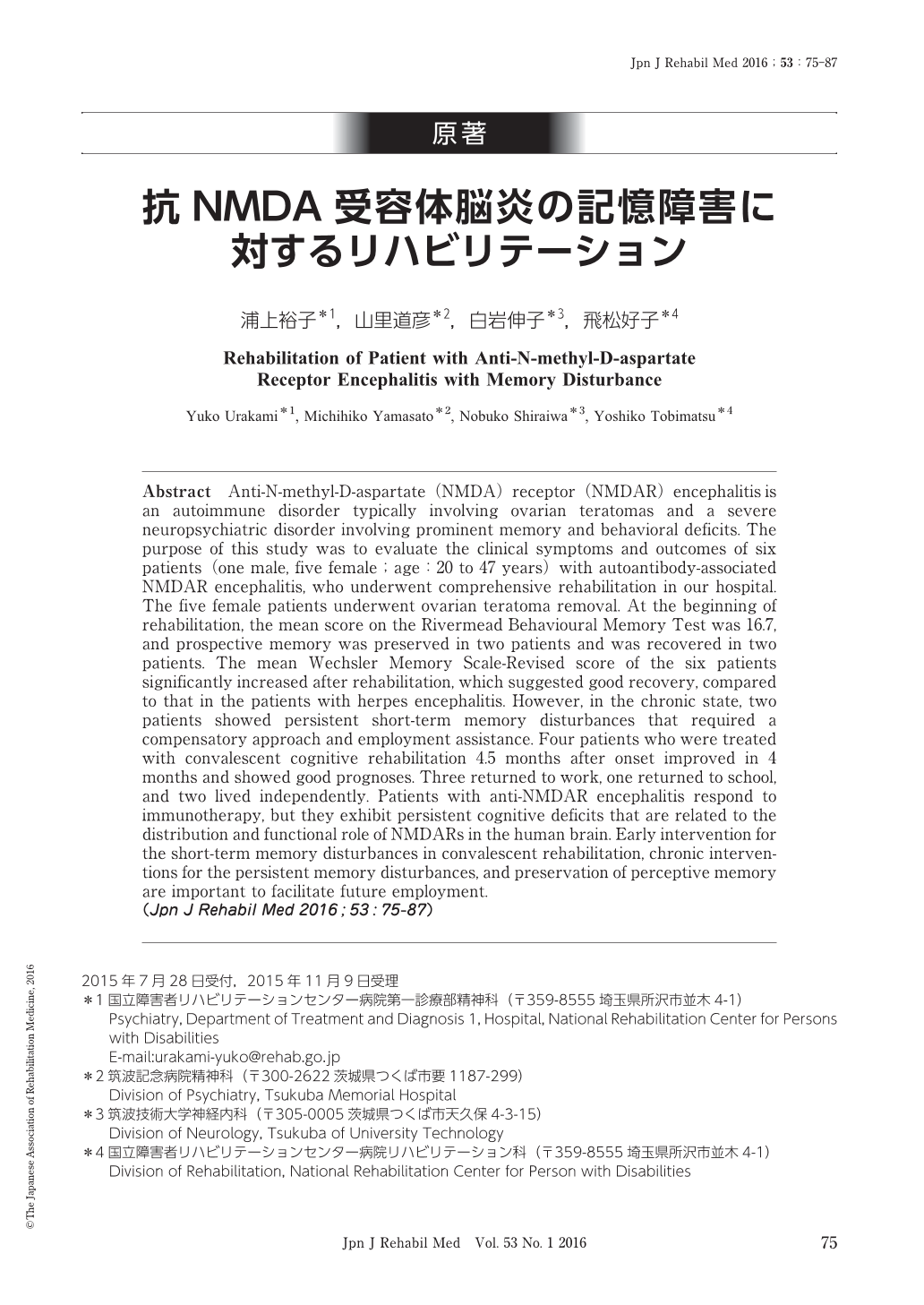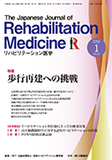Japanese
English
- 販売していません
- Abstract 文献概要
- 1ページ目 Look Inside
- 参考文献 Reference
要旨 抗N-methyl-D-aspartate(NMDA)受容体脳炎患者6名の記憶障害の回復の経過,予後からリハビリテーション(以下,リハ)を考察する.対象は当院でリハを行った6名(男1名,女5名,年齢20〜47歳)である.女性患者5名は卵巣奇形腫を摘出,6名のリハ開始時のリバーミード行動記憶検査では,標準プロフィル平均16.7,2名は展望記憶(存在想起,内容想起)には障害を認めず,2名は経過で改善した.ウエクスラー記憶検査の5項目はリハ終了時に有意に改善しており,ヘルペス脳炎と比べて回復は良好であった.発症から平均4.5カ月でリハを行った4名は平均4カ月で認知機能の改善を認め,就労,復学,在宅自立に至った.発症から治療まで6カ月以上経過した2名は,記銘力や,展望記憶の障害が慢性期にも残存し,代償手段や就労支援を必要とした.
回復期リハによる記憶障害の予後は良好な場合が多い.慢性期に残存する記銘力障害には,保たれている展望記憶や遂行機能を活用して就労支援と連携して介入することが重要である.
Anti-N-methyl-D-aspartate(NMDA)receptor(NMDAR)encephalitis is an autoimmune disorder typically involving ovarian teratomas and a severe neuropsychiatric disorder involving prominent memory and behavioral deficits. The purpose of this study was to evaluate the clinical symptoms and outcomes of six patients(one male, five female;age:20 to 47 years)with autoantibody-associated NMDAR encephalitis, who underwent comprehensive rehabilitation in our hospital. The five female patients underwent ovarian teratoma removal. At the beginning of rehabilitation, the mean score on the Rivermead Behavioural Memory Test was 16.7, and prospective memory was preserved in two patients and was recovered in two patients. The mean Wechsler Memory Scale-Revised score of the six patients significantly increased after rehabilitation, which suggested good recovery, compared to that in the patients with herpes encephalitis. However, in the chronic state, two patients showed persistent short-term memory disturbances that required a compensatory approach and employment assistance. Four patients who were treated with convalescent cognitive rehabilitation 4.5 months after onset improved in 4 months and showed good prognoses. Three returned to work, one returned to school, and two lived independently. Patients with anti-NMDAR encephalitis respond to immunotherapy, but they exhibit persistent cognitive deficits that are related to the distribution and functional role of NMDARs in the human brain. Early intervention for the short-term memory disturbances in convalescent rehabilitation, chronic interventions for the persistent memory disturbances, and preservation of perceptive memory are important to facilitate future employment.

Copyright © 2016, The Japanese Association of Rehabilitation Medicine. All rights reserved.


